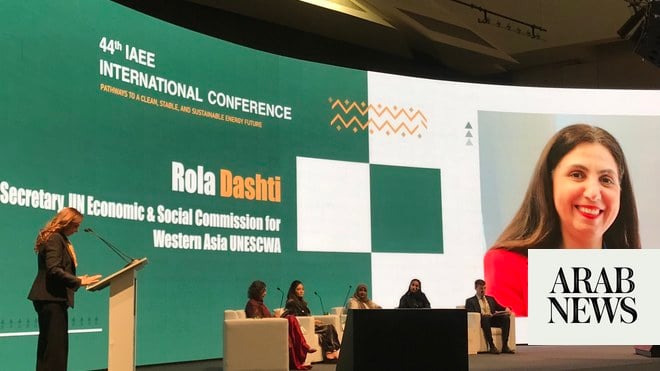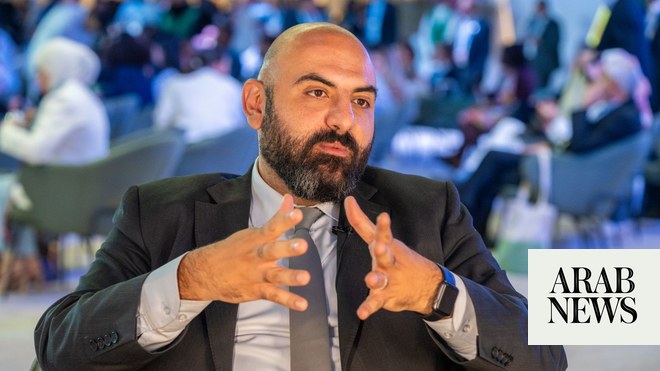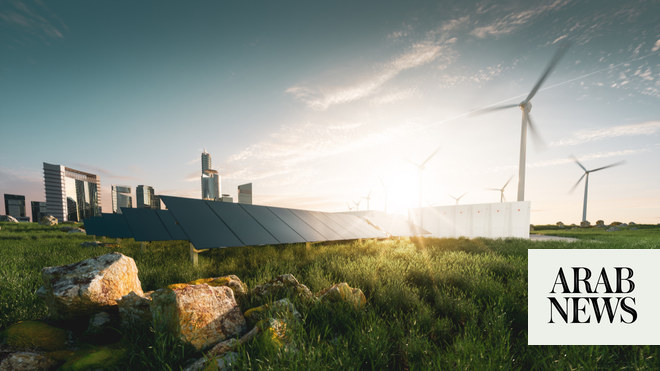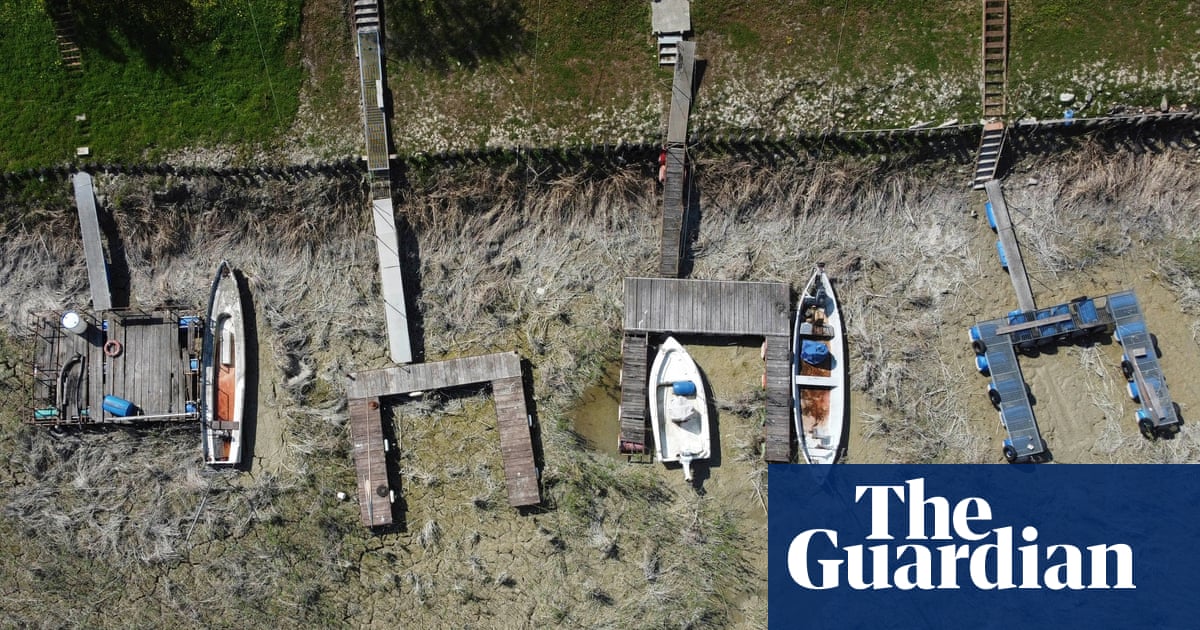
RIYADH: Events such as the IAEE Conference currently underway in the Saudi capital and COP27 held in Egypt and the upcoming COP28 in the UAE are important milestones for the region toward a successful transition to green energy transition.
This was underlined by Rola Dashti, executive secretary of the UN Economic and Social Commission for Western Asia while speaking at a session titled “Energy, Development and Climate Change” at the 44th IAEE International Conference in Riyadh on Monday.
“The Arab region is making significant headway toward climate change with two back-to-back COP conferences, the last one held in Egypt and next to be held in the UAE, and this IAEE conference will add more value to it,” she said.
Dashti praised Saudi Arabia for its green initiatives, measures for green energy transition, commitment to circular carbon economy, and scaling up the hydrogen energy program.
Echoing similar sentiments, Noura Alissa, a senior international policy analyst at the Saudi Energy Ministry, highlighted the importance of energy transition.
“Having a diverse energy mix is an important part of energy security,” she said.
Green hydrogen has a crucial role in the energy transition and the decarbonization of the economic sectors in the Arab region, said Sausan Al-Riyami, director of the Oman Hydrogen Center, German University of Technology in Oman.
“We should be ready in Oman and the Arab countries, and this could be done if we boost cooperation between all the stakeholders in the region,” she said.
Sarah Najm, assistant professor at King Saud University’s Department of Economics, noted that energy transition requires greater international cooperation.
Manjeet Kripalani, executive director at Gateway House, pointed out that India is a densely populated country with massive energy consumption. The situation is different from other countries facing energy transition challenges.
“The only country we can compare with is China,” she said.
She, however, added that China is taking a cautious approach to balancing its carbon-neutral commitment against the need for energy security, and India can follow the idea.
India is an energy-consuming country, and a large part of the energy produced locally is by coal, which is cheaper, she said.
Kripalani said there is a need to improve the efficiency of coal used to make the value chain more sustainable.
The session was moderated by Steven Griffiths, senior vice president for research and development, at Khalifa University.












